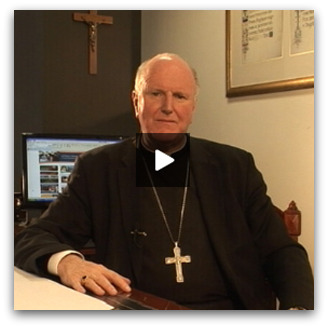Keywords: Stolen Generations
-

AUSTRALIA
- Sarah Burnside
- 09 February 2011
7 Comments
There is evidence that, far from its stated aim of 'normalising' remote communities, the Intervention is in fact counter-productive. A few days out from the anniversary of the Apology to the Stolen Generations, the question hovers: when will the Intervention end?
READ MORE 
-

AUSTRALIA
- Michael Mullins
- 31 January 2011
5 Comments
It is difficult for Prime Ministers to impose short term pain for long term gain if they want to be re-elected. But Gillard faces a different situation because the Independents are her masters, not the 2013 voters.
READ MORE 
-

EUREKA STREET TV
- Peter Kirkwood
- 05 November 2010
Prominent Aboriginal elder Tom Calma was brought up Catholic but no longer sees himself as a Christian. While he has gravitated towards his Aboriginal spiritual heritage, he envisions a positive engagement between Christianity and Aboriginal spirituality, and urges the Churches to be open to a hybrid Christianity that embraces both.
READ MORE 
-

EUREKA STREET TV
- Peter Kirkwood
- 05 November 2010
7 Comments
READ MORE 
-

RELIGION
- Frank Brennan
- 01 November 2010
3 Comments
There is an emerging Aboriginal middle class. The contested questions in those communities relate to the expensive delivery of services including health, housing and education. The contested issue in the urban community is over self-identification as Aboriginal by persons of mixed descent.
READ MORE
-

AUSTRALIA
- Michael Mullins
- 01 November 2010
2 Comments
At the time of the Apology to the Stolen Generations in February 2008, former Prime Minister Kevin Rudd committed Labor to halving the gap in employment incomes within a decade. It is now looking like another great moral challenge that Labor has given up on.
READ MORE 
-

AUSTRALIA
- Farid Farid
- 29 October 2010
9 Comments
If smelly shoes are the last objects of resistance then the occupation of Iraq will never end. The culturally co-optive nature of benevolent groups to take on causes and speak on behalf of those who allegedly cannot speak for themselves is disturbing.
READ MORE 
-

INTERNATIONAL
- John Falzon
- 18 October 2010
5 Comments
There's something disquieting about quietness imposed from above in the heart of a democracy. Anti-Poverty Week is a good time to reflect on how, as a nation, can hear the revolutionary stories of the oppressed and abandoned in our midst.
READ MORE 
-

ARTS AND CULTURE
- Andrew Hamilton
- 15 October 2010
4 Comments
The suffering of children opens a door into the hardness of society. Think about the experience of the Stolen Generations, the detention of asylum seeker children, the sexual abuse of children. Societies try to close doors that open on to vulnerability.
READ MORE 
-

ARTS AND CULTURE
- Myrna Tonkinson
- 20 August 2010
The women assemble to sing, dance, tell stories; thus the elders induct
younger women into the religious
knowledge and rituals that are shared across a wide area.
Yuwani Annie's origin story blends a Yanyuwa version with the biblical Adam and Eve story.
READ MORE 
-

EUREKA STREET/ READER'S FEAST AWARD
- Nigel Pearn
- 18 August 2010
3 Comments
The book was banned after parents complained about its anti-authoritarian attitude: 'Wanja [the dog] loved to chase the [police] van ... to bark at the van ... to bite at the wheel. The police van would drive away.' Like Jewish humour, Aboriginal humour is a response to a history of oppression.
READ MORE 
-

RELIGION
- Andrew Hamilton
- 08 July 2010
10 Comments
Archbishop Denis Hart's letter of
apology for sexual abuse by Catholic priests drew a variety of responses. Some expressed gratitude, others found it inadequate. The letter and responses invite broader reflection on the
place of letters of
apology by leaders of churches.
READ MORE 